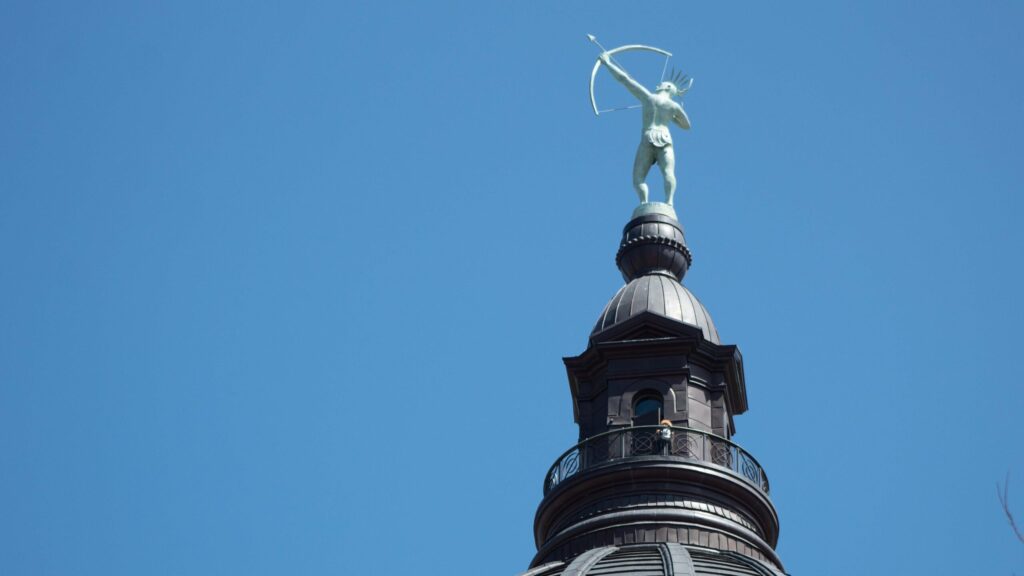TOPEKA — A survey of Kansans' attitudes about legislators, health care and economic issues reveals a general belief that legislators are not concerned about the economic challenges facing Kansas families and are not passing policies. The sources of support for expanding Medicaid eligibility were also identified. It helps Kansans.
The nonpartisan research firm Perry Undem conducted the study on behalf of the Common Sense Fund of Kansas and with support from the United Methodist Department of Health Fund. The study surveyed about 1,000 Kansas voters in February about health care, child care and hunger.
“It's clear that Kansans are experiencing significant financial stress due to the high cost of food, medical care, child care and housing,” said David Jordan, president of the United Methodist Health Ministries Foundation. Stated. “…about the challenges Kansans face, the solutions that can help address those challenges, and the fact that policymakers are not recognizing where Kansans stand on these issues and acting accordingly. , it's quite surprising that there's quite a bit of agreement.”
Seventy-nine percent of voters said most Kansas policymakers don't care about the economic challenges facing average families. 70% of voters didn't think Kansas politicians cared about working families.
More than 80% of voters said it is becoming increasingly difficult for the average Kansas family to afford housing, health care, child care, and healthy food. About 70% feel that the average Kansas household is currently experiencing financial hardship.
“A majority of Kansans believe that policymakers are not listening to workers when pushing for new laws and policy changes,” said Ashley Orr, executive director of the Common Sense Fund of Kansas. ” “Kansasans agree that lawmakers should do more to help parents and families who are struggling to make ends meet. We need to focus on common sense policies that reduce costs for everyone.”
Of those surveyed, 90% were concerned about local hospitals closing, and 73% supported Medicaid expansion, which would expand state health insurance coverage for low-income households. Under the Affordable Care Act, the federal government will cover 90% of the additional cost of Medicaid services in exchange for expanding eligibility to people at or below 138% of the federal poverty rate. Kansas is one of 10 states that have not yet expanded Medicaid.
Most of the estimated 150,000 Kansan who will benefit from the expansion are low-income workers or Kansan who suffer from chronic illness. Medicaid expansion would also secure $700 million in annual federal funding to save 59 local hospitals from closing.
Expansion has been blocked by leading Republican state lawmakers in both houses of Congress, but longtime supporter Gov. Laura Kelly, along with health care groups, is pressuring lawmakers to take another stab at the issue this session. . Her proposal is scheduled for two public hearings on Wednesday.
This new study, like others released in recent years, showed that business expansion has bipartisan support. About 90% of Democrats, 74% of independents and 61% of Republicans supported expansion. Ninety-five percent of residents said they were concerned about rising medical costs, and 87% said they were concerned about an increase in the number of uninsured people in the state.
The majority also wanted government action to ensure Kansans had access to healthy food and groceries and opposed putting limits on food assistance. About 76% of voters said the cost of groceries was an issue, and 79% supported expanding the state's food access programs.
Most people want to see more state investment in programs that help Kansans afford child care, with 78% in favor of expanding the child care tax credit. Childcare data State researchers suggest that only 46% of Kansas children receive child care services and that 85,000 more child care slots are needed to meet demand.
This year, Kelly recommended allocating $56 million for child care as part of his budget proposal. FY2025. The funding includes about $30 million to build child care facilities and $5 million for his pilot program in northwest Kansas to test the practice of public-private child care partnerships in rural areas.
Last year, lawmakers tried to roll back regulations on child care facilities to address a child care shortage, but they feared reducing staff training and cramming more children into facilities could be damaging. Kelly then vetoed the bill. According to the survey, 73% of Kansas residents oppose Congress passing policies that would loosen qualifications and standards for child care providers.
“There is broad support for tax credits,” Jordan said. “But while there is also a near-identical agreement that policymakers should not relax qualifications for childcare workers, the solution lies in the need to invest in early childhood affordability and the growth of children. We simply recognize that there is no equivalent to the need to consider creative tax credits to help make care more affordable. ”


